Decentralized Web Summit
I'm unaware of a group like this who has come together to strategize on what is working and not on the web
today is Builders' Day: we are coming here in a needy way to work out how we can work together
Tomorrow is Public day - more like a conventional conference with 300+ people here and keynotes
and the third day is a public open day which is more freefrom
the web has been unbeliveably successful, but centralization has made parts of it stagnant
at the internet archive we make snapshots of the web, but it doesnt' capture an increasing dynamic web
we can't ignore the privacy issues especially after Snowden
and we need to keep the web fun and interesting as it goes forwards
I've never been in a group where we have vint cerf, tim berners lee and the next generation building new tech
I'm going to ask Mitchell Baker, head of the mozilla foundation to give her ideas:
as we think about the decentralized web and building the web, we need a shared idea of the web we carry forward
the web should be immediate: safe instant access to content via a universal address without the need to install
when you access the content you should not need a relationship to see it - no intermediariries
the web should be Open: anyone can publish content without permission and provide access as they see fit
The web should be Universal: content runs on any device or platform
The web has Agency: the user agent can choose how to interpret content provide by a service
the user needs an agent on their side to help them. That is why we still build firefox
Chrome is built to get fastest access to data on a server; Firefox to act for the user
the web through interoperability allows technology on behalf of the user to mediate the entire experience
If we can keep Immediate Open Universal Agency then the web remains decentralized
the only way I can come up with to be reliable and private is to change some of the basic structures of the web
thank you Wendy Hanamura for bringing us all together
you've got to love Brewster because he always thinks big
this started last february when Brewster was asked by 5 foundations to think about the future
he said we want to lock the web open for good, and bake our values into the code of privacy and openness
we called this builders' day - but builders aren't just coders, we're going to need philosophers and anthropologists
we're going to need storytellers too
first you need to know each other, then find principles you can agree on, then plan and collaborate
Brewster said we can get the original architects: Vint and Tim, and the team building the open browser: Mitchell
we asked you what you wanted, and you asked for real connections and knowing each others' technologies
we also put you into breakout groups; I know many of you could be in several of these, but you need to pick one
you're in the temple of internet here, we provide free wifi to anyone in range of the building
this building was built in 1923, which is the date before which everything is out of copyright which is prophetic
Gunners law: 1:when your head is bursting, express the most important one. In a group of N talk 1/N of the time
now I want you to introduce yourselves: Name; where you're from; what you want
Introductions
brewster kahle, internet archive, universal acces to all knowledge
gunnar from san francisco
richard desaris internet archive decentralized tech in new applciations
sean white mozill, decentralized access in the ral world too
tim berners lee, from the we, i want for the tech we work on to re-empower people give access and control to their data
tim: I would like to quietly produce a new workd this is much mroe empowering than the world of silos
david reed from reed.com I want decentalization to continue to live in the internet and prove you can build them
kevin marks indieweb, composable and substitutable tech and bridge to silos
van jacobson, google: make the web better
greg lehan from ipdb and want to recruit help
paige peterson from madesafe
micahael grube freenet want to make censorship impossible
ben trask stronglink i want one content addressing format everyone can agree on
harlan wood - i want civilisation 1.0
dan whaley hypothes.is want to decentralize conversation and want help
jeremy from namecoing: security privacy adn free speech enforced by code as it's mroe reliable
evan swartz of interledger want to help people get paid
matric.org - dectralized open system for real time communication
zooko of tahoe-lafs.org - I want decentraliation fo political power
firas from webtorrent - I want peer to peer usable by average peope and work wiht the web
dc marsh webtorrent, I want to fight for the user adn learn from you guys
cory doctorow from eff -I want a free fair and open internet to fight climate change and economic injustice
dan gillmore, journalist, we need ctechnology to help people read communicate and assemble
amber case, cyborg anthropologist, i want the ability to create more than you consume on the web
amber: we forget how joyful it is to create thinsg
chelsea from MIT medialab, I want cross-generational conversation
simon hassan
dave rosenthal from LOCKSS stanford, tcp and the web lacked pessimistic threat mdoels -we need consensus for thes
David: we want the name to be independent of the location so archive copes are the same as the original
rick whitt google, I want the internet modular, end to end, interconnect and agnostic
Tamas budapest zeronet
Brian Behlendorf, hyperledegr project, I want common protocols to make these stacks more approachable
jason griffey, Berkman center, freedom of access and freedom of inquiry baked into protocols
I want the smallest building lbocks so the differnt projects can interoperate
kyle drake from neocities - I want everyone to have a website that stays up forever
arkady mediachain transcend the advertising surveillenc model fo the internet
mitchell baker mozill: more equitable opportunity for more people
Sylvia Paul your publiscist - I want the worl dot know
jeremy from eff I want a web where poepl don't have to rely on trusted 3rd parties
? from eff i want all connectiosn to be encrypted and authenticated
jocahim from berlin: decentralized application based on shared data
we have plenty of free seats here we want mroe women and people from other parts of the world
courtney muma, intrent archive, I want the web to have a memory
dan roberts from freenet, all people express freely wihtou permission from cental auhtority
Juan, IPFS - I want all the things you are saying - lets make them reality
David from lisbon ipfs, build better primitives for developers independent of connection quality
jeremy of IPFS, I want everyone to have free access to all the worlds information
I want equal opportuity for all humans
Christopher Allen, planet earth, yesterday was 25th anniversay of PGP and nobody noticed. rebuild the web of trust
constance of coala, working on legal technical policies for blockchain and decentralized tech
primavera of COALA I want decentralized governance
Max of dat project I want all dat to be truly decentaized and availbale
Mike Steffens, arnodl foundation, strategic plan for decntralization of the web with real options
Judith Erlich, filmmaker: baking freedom of speech into iceland
aaron archive, universal access to all knowledge. children watched over by machines of loving grace
tracy on internet archive and I want it all encrypted and private: all of it
we had lots of requests for press, but @qhardy of the NYT is hear and our incredible journalist Dn Gillmor
Kevin marks is live tweeting - follow him
if there is something you don't want tweeted, warn beforehand so I haven't already tweeted it
tomorrow we will live stream the talks and archive them at high res
Friends I bid you bright good morning
we are about to move into a phase where your laptop is less useful
put your device to the side and rise
Breakout Group report back
1: no reliance on politcal stability disagree on who can restrict others and on accountability
1: there is a tension between equal access and visbility
1: we want to build a standard way to address content and self-soverign identity that is cryptographic
1: we want to build a peer to peer encrypted channel without a central authority
1: hard to avoid regulatory capture
2: agreed on talking bout governace, interop, extensibility and cryto
2: there is alway some form of governance so we need to talk about it
2: interop - define minimum standards or building blocks not a monolith
2: community standards of censorship resistance and dealing with harrassment and abuse
2: lost fo discgreements on enryption and signing
3: agree that decentralization is a means not an ends
3: division of control baked into the infrastructure to resits capture and enclosre
3: emphasise the idea of the end user able to interface wiht the decenntraised system not a center
3: disagree on whether kinds of tech are bad or good or factors
3: complicating factors around access to kinds of data
3: how to prevent recentralisation and an endless loop so we'r not back in 15 more years
4: agreed on no central authorities -aspiration that files are content adressable
4: disagree on need to replace ICANN especially multi-state
4: idea: court institutional support for decentralised web
5: agreed we should be working systemic decntralisation on top of technical requirements
5: decentral governance is necessary to rpesevre decentral tech
5: content accessibility is import but has lots of sub-parts - rootless identifiers
5: not require http but map to multiple protocols
5: security requirements baked in on day 1; privacy baked in
6: agreed on openess of access and public data stored so everyone can access it
6: some disgreemnet about free of charge to the public access
6: disagreement on the idea of filtering and whether people are putting their data on the networks
6: and disagree on how you define sub-groups - inclusively or exclusively inherently
6: the hard problem is how you define the boundaries of groups
Van Jacobson's Named Data Network
Just before this started a young guy showed up and wanted to show Van Jacobson his networking stack
If we can decentralize the internet, do we need to worry about decentralising the web?
we want to do both. There are incredible things happening in the dentralized web that will change the world
the web chanegd the world, but it was build on IP which assumed telephony point to point connectsions
you may find that what you want to achieve with a decentralised version has problems with the IP basis
in Named Data Network a packet has name duRI not an IP address. How does that work?
the web chanegd our model of how the world works - for most people the internet is irrelevant except for the web
wiht the web you give a name and get informtion back - it is a transctional model and we shoudl not build on that
rather than building on top of the web, we should push that transactional model down the layers
when you go to archive.org you run a stack of protocols, but as a user I think of it as a data hierachy
if your view of archive.org is as a set of machines, you need to wrap them in certificates to check
in the NDN model you announce the name, and use that to look up. You can't trust where you got it from
you have to get the trust from the information itself, not form where you obtained it
the basic structure gives a packet the url of where you got it from and a signature that asserts it is an answer
any security model that we are capable of building today needs certificates and addresses
when the data is not reliant on the network path you got it from but can be from anywhere, it works in new ways
what you are asking for is more important that the path back to you, so it can be asked anonymously too
the current abstraction means the router can't know if the endpoints have got what they needed. we can fix this
because the information is write once it is all cacheable
why is it better to do this at the lower level and not on top of IP?
we have a lot of structural problems with IP -
with about 2Bn users of the 6Bn world population it is hard to add the next people
the IP routing model encourages monopolies to form - it is hard to deploy in rural areas
one of the problems that Vint and the IAG discussed at length was how to get from phone to new protocols
you need a strategy to get from where you are to where you want to be - IP works as an overlay on anything
so you can run NDN over IP, but you could also run IP over NDN
how do you find the performance difference between NDN vs BDN/IP?
an IP identifier is very restricted; NDN is just a hierarchical structure, not special
the extra cost with NDN is the security as producer has to sign every packet, which takes more work
the sender is trying to prove to the receiver that they should receive that information
a lot of our specs are open source and open standard for adoption. Is NDN open source?
the NDN software base is all GPLv3 and is on github see named-data.net
what shell do you use?
I'm a dinosaur so it flips between bash and tcsh
Cory Doctorow and Zooko
can you give a 2 minute recap?
I worked with David Chung after dropping out of college
I then worked on PGP for a few years then moved to SF
I then came to Sf and met Bram Cohen and went to Mojo Nation
Bram said 'fuck this, it's not working' and went off and made bittorrent by throwing away 5 of 6 features
biran eno calls it being the first person to not do something people hadn't not done before
the I worked on zRTV for voice on the internet
and then I met Brian and worked on Tahoe, where we threw out different things than Bittorrent
now I'm working on zcash which is a distributed currency that has privacy built in
with bittorrent the more popular a file gets the more it is shared, with businesses that should work with money
as hackers we think of DHT etc as tools, but the most powerful tool is the feedback loop of business allocation
firms are vulnerable when they are a little successful when you are ressponible for your friends' pay
the second way is when the companies grow and are under threat from specialised shareholders taking control
big businesses are harmful; they become coercive.Can you stop them getting into the monopoly stage?
if you are trying to build good things you have to use this most powerful tool and know about its effects
this reminds me of the p2p conference in 1999 - I don't want it to be this long again
I used to use the line that the DCMA is so old people still though VR was a good idea. I can't say that anymore
what reignited lot fo people's excitement about decntralisaton was the success of bitcoin
you talk about how crypto can separate content from hosting and control
I reject "decentralize all the things" My goal is to uphold human rights
with math you can separate who you rely on for communication for who you may be spying on your comms
what have we learned from the first era?
I don't know
in the early day we made some Uber-ish bets on copyright law giving way
we had a de facto change where lots got normalised, but no de jure change so you can be sued for all you have
there was a technological determinism that judges would come round. are we still naive?
what we found that companies that get big enough can change things see Uber- why that works I'm nto sure
the taxi companies are local whereas uber is global, thta makes a difference
are market allocation and peer production in competition, and which is a better mechanism?
I don't like open loop answers where it's not clear how things are going to work
bitcoins tit fot tat wasn't money, but ti wasn't love either
do likes count?
my answer to CHelsea's question si that the monetary loops have high stability
(david reed) if the monetary loops are way too powerful, what happens if they're not linear like bittorrent
(david reed) how do to you prevent facebook from owning everything though network graphs?
when designing technologies that are designed to have social consequences, we have to think about this
the worst failure model we have at the moment is things not taking off; we haven't dealt with the opposite much yet
what structures do we need to achieve that thrust adn takeoff?
I really like sharing of knowledge and science - it's hard, but there is success there
I do like open source sharing which is almost like science, and it is hard too
someone reviewed employment data - one key thing was the lack of noncompetes in SV beats out Boston
also don't sign patents for your work unless they go into a non-agression pool.
Tamas Kocsis's Zeronet
Tamas Kocsis coded up zeronet on his own in 3 weeks
we're going to demonstrate Tomas's project zeronet
zeronet is a decntralised web project that allows you to integrate web pages without a cental service
when you run the zeronet client on your computer and open it in the browser - you can see decentralised websites
you can see how many peers are serving the site, but not all of them at once
so to take down this site you'd need to take down all these 45 sites on the web
thats right - the data is resilient
to host your own blog you can clone a node and then share the link wiht your friends
if you edit it it updates for your friends
there is a tutorial showing you how to use this comments are also decentralized
there is also a forum where comments can be shared
you can also follow blog feeds or comment feeds
if you're not running the client can you see the site?
there are people running zeronet gateways that share out to the web
zeronet hashes are the same pki as bitcoin so I can send donations to each site
there is a 10MB limit so it is for text, not for images
you could use IPSF for larger files
I'm impressed with zeronet - you wrote all apps from scratch. Can others do so?
what is the latency for publishing?
it goes out straight to all peers
 Mark Ghuneim reposted this 10 years ago
Mark Ghuneim reposted this 10 years ago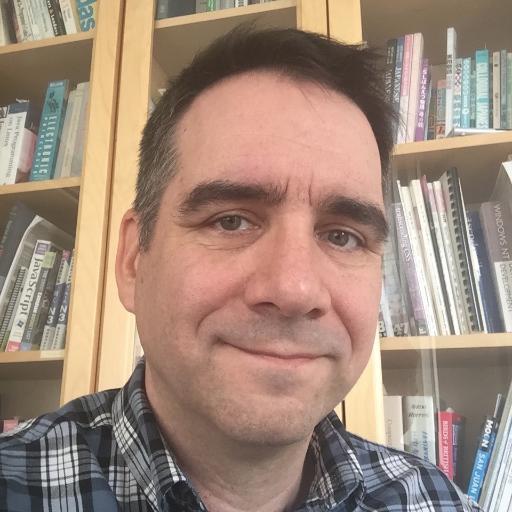 Jim Pick reposted this 10 years ago
Jim Pick reposted this 10 years ago rektide de la fey liked this 10 years ago
rektide de la fey liked this 10 years ago Rick Mendes reposted this 10 years ago
Rick Mendes reposted this 10 years ago James Wheaton reposted this 10 years ago
James Wheaton reposted this 10 years ago Maura Tuohy reposted this 10 years ago
Maura Tuohy reposted this 10 years ago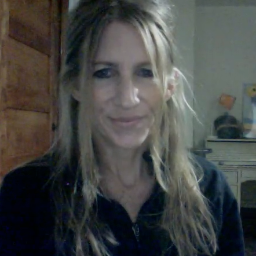 monika hardy liked this 10 years ago
monika hardy liked this 10 years ago Jim Nelson liked this 10 years ago
Jim Nelson liked this 10 years ago Markus Spath
Markus Spath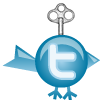 Thomas Buck
Thomas Buck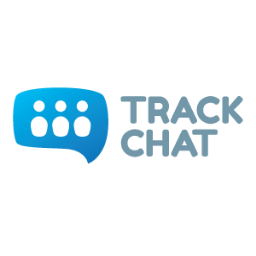 TrackChat
TrackChat Hacker News
Hacker News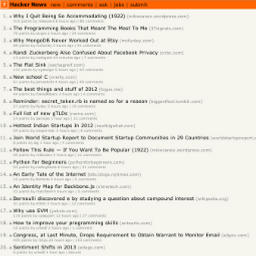 Hacker News
Hacker News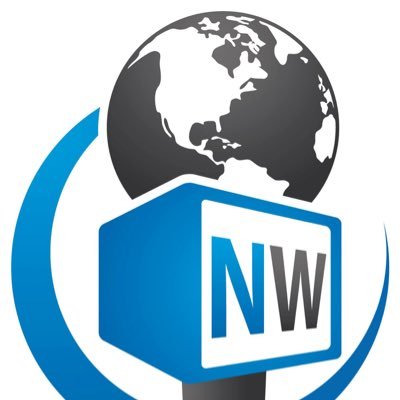 Newswire IO
Newswire IO Peta Eaton
Peta Eaton Pep
Pep f0
f0 Tim Burks
Tim Burks Retweety McTweetFace
Retweety McTweetFace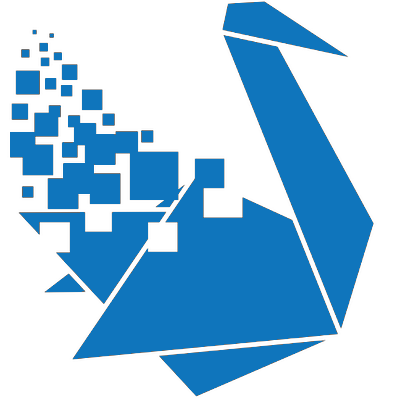 The Swan Factory
The Swan Factory